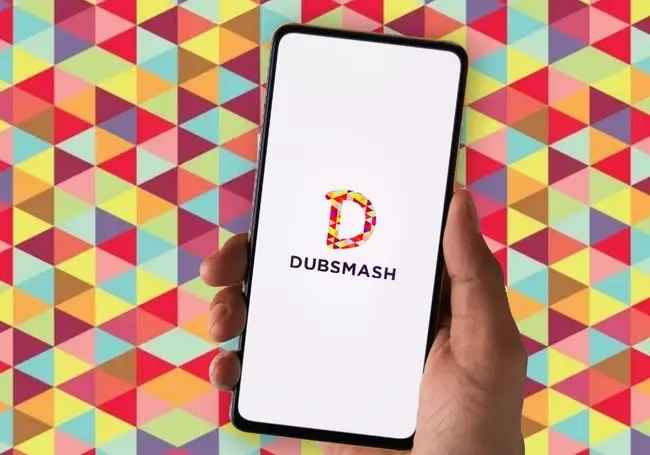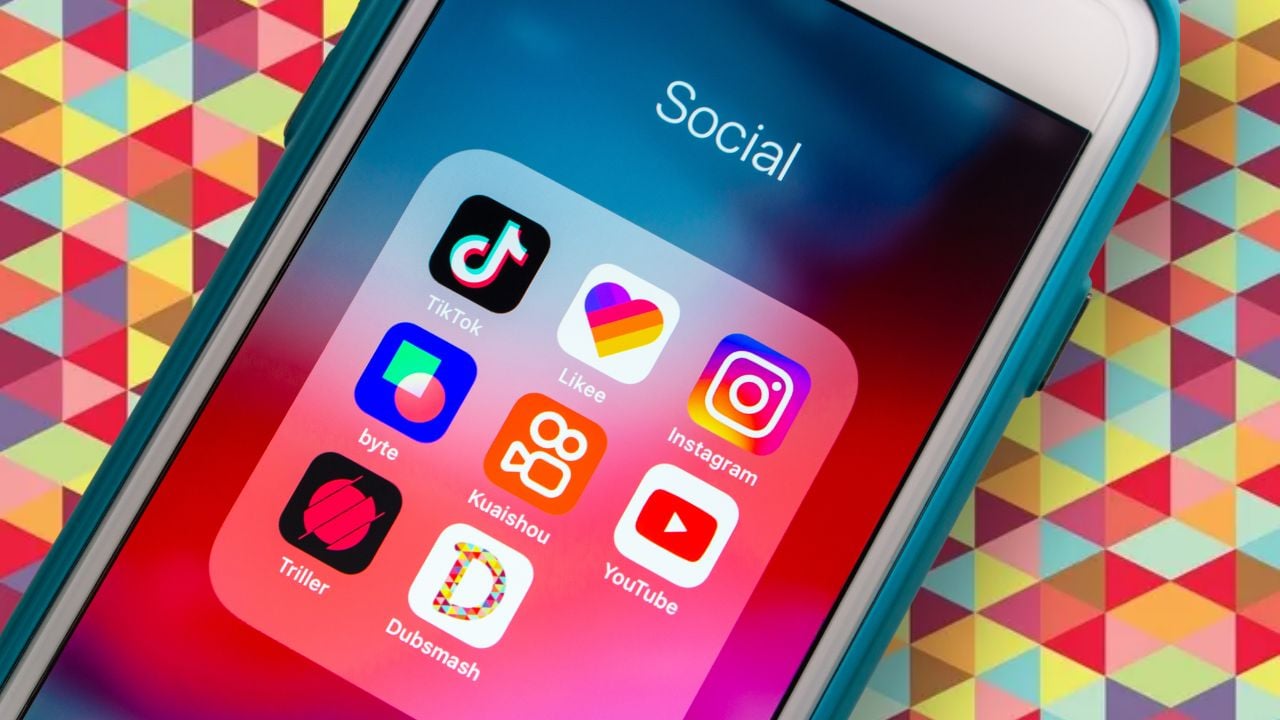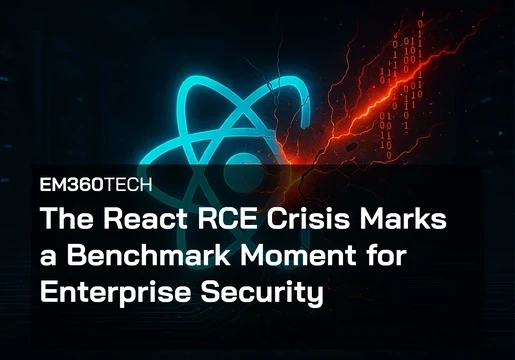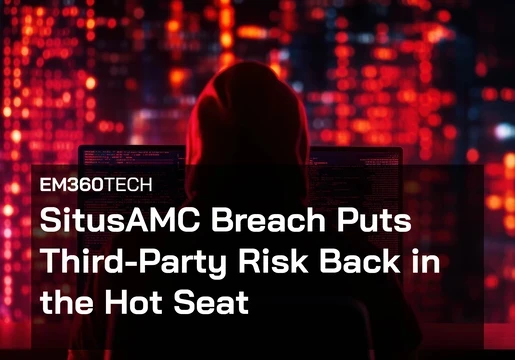Ever wonder where the trend of lip-syncing videos originated? You might not remember Dubsmash but this once-dominant app in 2014 was the pioneer of the viral phenomenon.
This article explores what happened to Dubsmash, the challenges that led to its downfall, and when and why the platform shut down.

What is Dubsmash?
Dubsmash was a short-form video-sharing app, launched in 2014.
The core function of Dubsmash was allowing users to record themselves lip-syncing to pre-recorded audio clips. These clips could be famous movie quotes, snippets from songs, or even funny sounds from viral videos.
The emphasis was on creating lighthearted and comedic content. Users could record themselves acting out funny scenes or just having fun with the audio.
What Happened to Dubsmash?
Launched in 2014, Dubsmash offered a simple yet engaging concept: users could record themselves lip-syncing to pre-recorded audio clips. These clips spanned movie quotes, music snippets, and even funny sounds from viral videos. Its focus on light-hearted, creative content fueled its rise to popularity.
Dubsmash automatically kept recordings private within the app ‘my Dubs’ section. However, users had the option to make their 'Dubs' public. This allowed them to be shared beyond the app on various platforms like social media websites, other apps, or online forums.
Within a week of its launch in Germany on November 19, 2014, it soared to the number one position in the app store. This meteoric rise continued as Dubsmash climbed to the top spot in over 29 other countries. By June 2015, it had reached a staggering 50 million downloads across a whopping 192 countries, solidifying its global popularity.
Dubsmash was incredibly easy to use. Recording a ‘Dub’ required minimal technical skills, making it accessible to a wide audience. Users could easily share their ‘Dubs’ on social media platforms, further expanding their reach and virality. When celebrities like Ariana Grande jumped on the Dubsmash bandwagon, it generated significant buzz and attracted new users.
As the social media landscape evolved, Dubsmash began to face limitations
Compared to emerging video editing apps, Dubsmash offered a basic experience. While users could adjust colors, features like filters or text animations were lacking.
Both Vine and Dubsmash emerged around the same time in 2014 and competed for user attention in the short-form video space. Vine focused on user-created comedic skits with a 6-second limit, and original content, while Dubsmash capitalized on the trend of lip-syncing and popular audio clips
Read: What Happened to Vine? How a Once-Viral App Died
Dubsmash wasn't a complete social network like Facebook or Twitter. It functioned more as a platform for creating lip-syncing videos, limiting its ability to compete with platforms offering a wider range of social features.
While Dubsmash captured the initial craze for lip-syncing videos, user preferences began to shift towards a more versatile platform. TikTok offered a wider range of creative tools, content formats, and a smarter recommendation system, catering to broader audience and evolving trends.
By December 2019 Dubsmash was downloaded 408,000 times, compared to TikTok's 4.5 million, by 2020, Dubmash dropped to 3,000 downloads per month, while TikTok's downloads rose to 4.6 million.
Dubsmash lacked advanced editing tools compared to emerging video editing apps. TikTok, on the other hand, offered a wider range of creative features and filters, catering to a broader desire for video editing. TikTok's algorithm kept users engaged on the app and discovering new trends. Dubsmash's discovery system wasn't as efficient, making it harder for users to find content they liked.
Read: Why TikTok Notes Could Actually Kill Instagram
While Dubsmash had a strong initial run, it couldn't keep pace with the evolving landscape of short-form video content creation. The limitations in features, discovery, and content variety likely contributed to its decline in the face of a more versatile platform like TikTok.
In December 2020, Reddit acquired Dubsmash. This marked a turning point. Reddit aimed to leverage Dubsmash's video creation tools and integrate them into their own platform.
The announcement from Reddit emphasized that Dubsmash would retain its own platform and brand initially. However, the primary goal was to integrate Dubsmash's video creation tools into the Reddit app.
After nearly a year of development, Reddit successfully integrated Dubsmash's technology into its platform. However, in February 2022, Reddit made the decision to shut down the Dubsmash app.
Unfortunately, this meant users lost access to their videos on the Dubsmash app unless they had downloaded them beforehand.

Reddit appears to have prioritized integrating the video creation functionality into its own platform rather than continuing to operate Dubsmash separately. Maintaining two separate apps might have been seen as redundant, especially if user growth on the Dubsmash app was stagnant.
By shutting it down, Reddit could focus on pushing video creation features within its existing user base. Shutting down Dubsmash could have been a cost-saving measure for Reddit, allowing them to focus resources on developing video features within their core platform.
Read more: ‘Reddark’: Reddit Goes Dark as Users Revolt Against API Charges
Unfortunately, the shutdown also meant users lost access to their videos unless they downloaded them beforehand. The dubsmash.com website now redirects to Reddit, and the app is no longer available in app stores.
Is Dubsmash Gone?
As of February 2023, Dubsmash is gone. Reddit, which acquired Dubsmash in December 2020, shut down the standalone Dubsmash app on February 22nd, 2022. This means the original Dubsmash experience, where users could create and share lip-syncing videos, is no longer available.
Unfortunately, the shutdown also meant users lost access to their videos unless they downloaded them beforehand. The dubsmash.com website now redirects to Reddit, and the app is no longer available in app stores.
Although Dubsmash itself is no longer available, it played a significant role in popularizing short-form video content and paved the way for platforms like TikTok.
The emphasis on lip-syncing and user-generated content with music remains influential in the social media landscape.







Comments ( 0 )